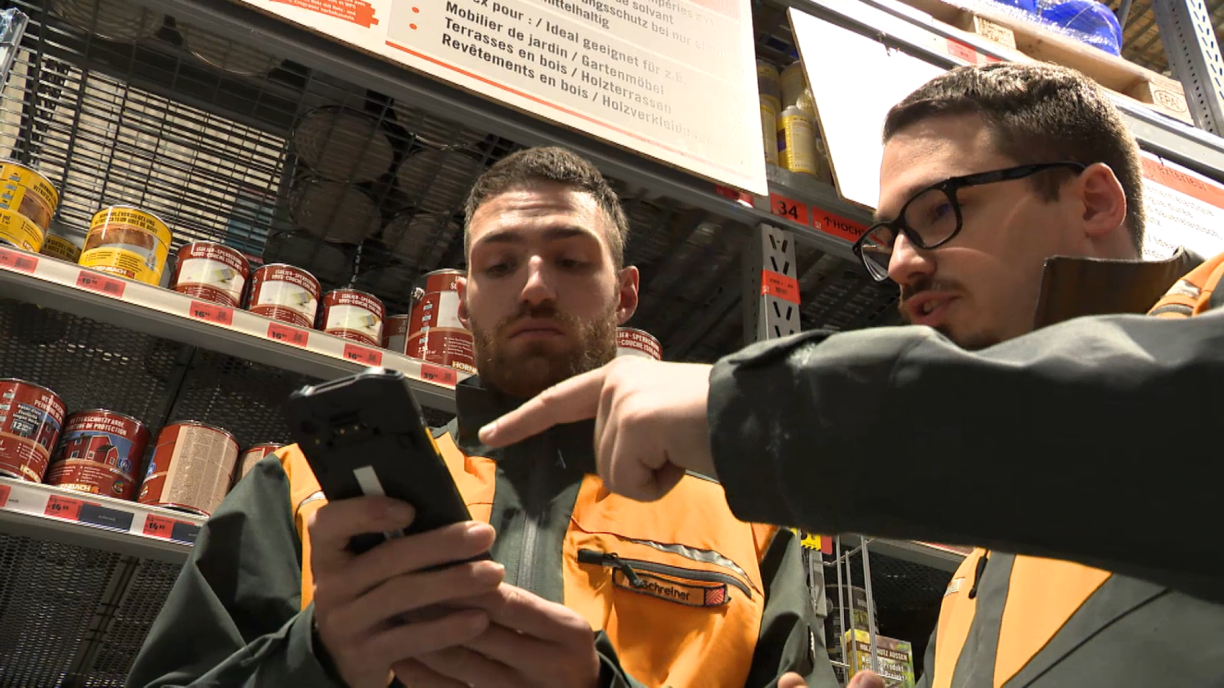
However, finding work in the primary labour market, outside of specialised employment schemes, can pose challenges for them.
One company in Bertrange stands out for its commitment to promoting inclusion and fostering positive experiences with disabled employees. Our colleagues from RTL Télé visited this company to learn more about its practices.
Brian Schreiner, who has a learning disability, shares his experience working in logistics at a DIY store for the past year and a half. He navigates between assisting customers in the store and managing tasks in the back rooms, adapting as needed. Schreiner initially started with an internship with his current employer.
Among the 188 employees at this DIY store, 14 are disabled. Management emphasises the importance of responsibility and inclusion. Sam Houblie, the HR manager, highlights the need for dialogue and customisation of work to accommodate individual employees. The company has implemented a scoring system to assess each section and workstation’s compatibility with employees’ restrictions.
Jessica De Sa Correia from ADEM stresses the ongoing need for awareness-raising efforts. She works to connect companies with disabled individuals, facilitating initiatives like the Duo Day. Additionally, companies are encouraged to offer internships and receive financial support from ADEM and the Ministry of Family Affairs. ADEM also provides inclusion assistants who analyse environments and candidates’ needs to optimise matching and ensure long-term success.
Carole Müller, President of the Luxembourg Confederation, highlights that many companies have yet to consider employing disabled individuals. However, she views this as a potential opportunity, particularly within the retail sector, which grapples with staff shortages.
Müller emphasises the “loyalty” and untapped potential of disabled workers, noting that while they may face challenges in certain areas, they excel in others. She stresses the importance of finding ways to integrate them effectively into the workforce alongside other employees.
To raise awareness about these possibilities, the Luxembourg Confederation recently collaborated with the aforementioned DIY store. Sam Houblie, reflecting on the store’s experiences, notes that disabled employees are often much more committed and are also less likely to be absent: “There is a great appreciation there, in terms of what people give back to you. And that’s why we decided to go down this route and we haven’t regretted it so far.”
Full report by RTL Télé (in Luxembourgish)